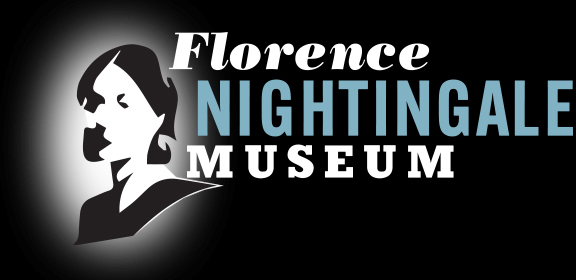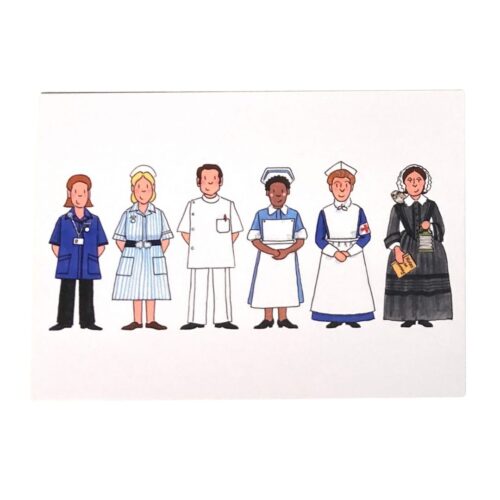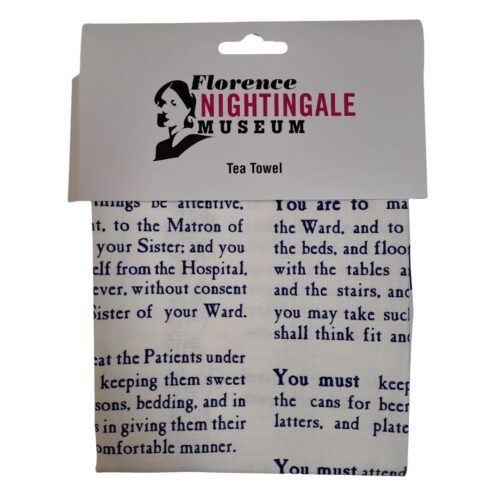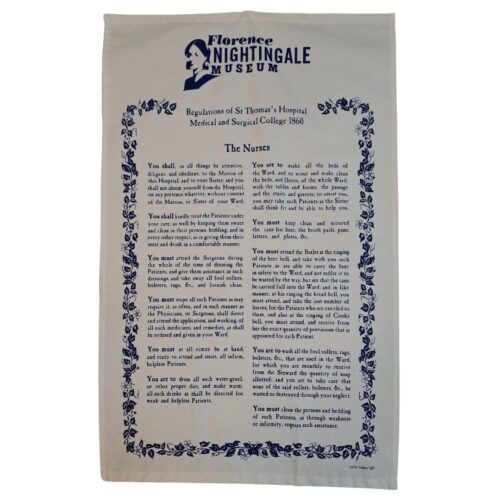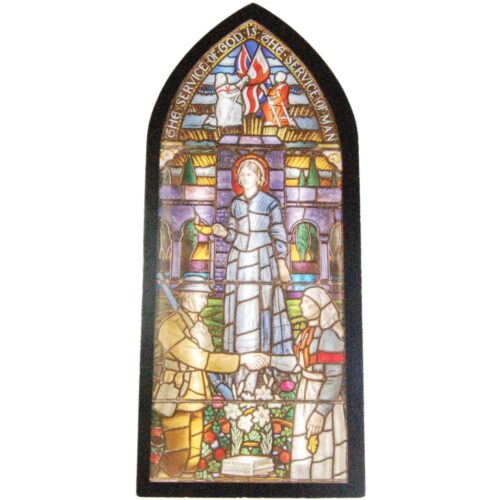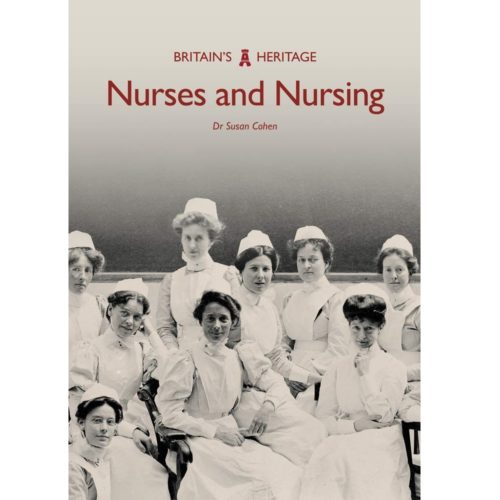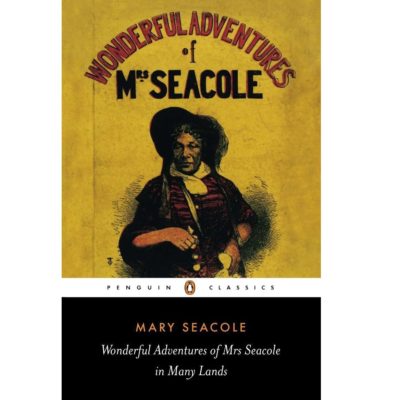-
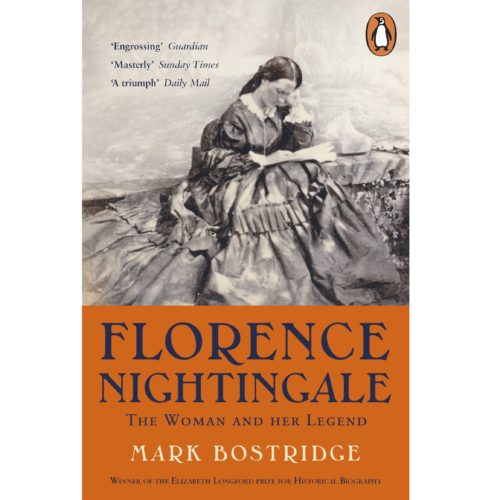 Winner of the Elizabeth Longford Prize for Historical Biography, Mark Bostridge’s Florence Nightingale is a masterful and enjoyable biography of one of Britain’s most iconic heroines. Whether honoured and admired or criticized and ridiculed, Florence Nightingale has invariably been misrepresented and misunderstood. As the Lady with the Lamp, ministering to the wounded and dying of the Crimean War, she offers an enduring image of sentimental appeal and one that is permanently lodged in our national consciousness. But the awesome scale of her achievements over the course of her 90 years is infinitely more troubling – and inspiring – than this mythical simplification.
Winner of the Elizabeth Longford Prize for Historical Biography, Mark Bostridge’s Florence Nightingale is a masterful and enjoyable biography of one of Britain’s most iconic heroines. Whether honoured and admired or criticized and ridiculed, Florence Nightingale has invariably been misrepresented and misunderstood. As the Lady with the Lamp, ministering to the wounded and dying of the Crimean War, she offers an enduring image of sentimental appeal and one that is permanently lodged in our national consciousness. But the awesome scale of her achievements over the course of her 90 years is infinitely more troubling – and inspiring – than this mythical simplification. -
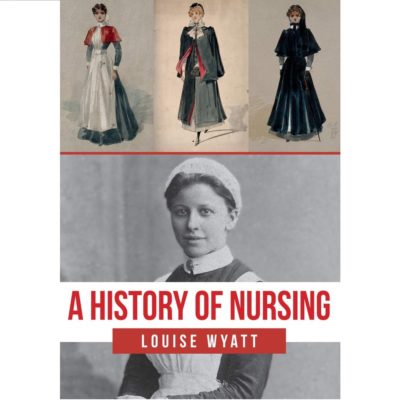 A History of Nursing explores the history of nursing by investigating the earliest records of the caring profession, how it progressed and what established it along the way to becoming the nursing we see today. It starts at the beginning of the story - how, once upon a time, all we had to depend on was Mother Nature. How did nursing go from being knowledge handed down through ancient scripts, folklore and sometimes by accident, to the degree-level, accountable practice of modern times? And why do nurses not wear hats anymore? A History of Nursing answers all these questions and more.
A History of Nursing explores the history of nursing by investigating the earliest records of the caring profession, how it progressed and what established it along the way to becoming the nursing we see today. It starts at the beginning of the story - how, once upon a time, all we had to depend on was Mother Nature. How did nursing go from being knowledge handed down through ancient scripts, folklore and sometimes by accident, to the degree-level, accountable practice of modern times? And why do nurses not wear hats anymore? A History of Nursing answers all these questions and more. -
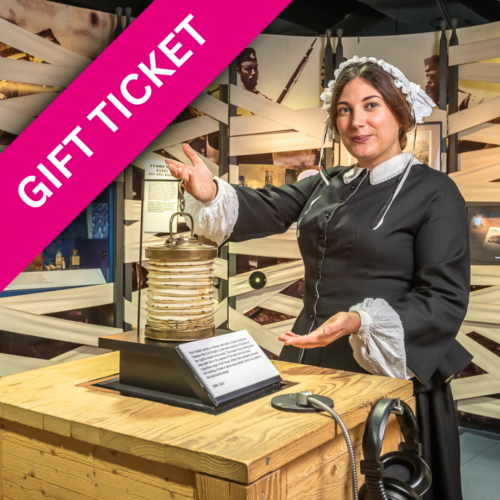 Gift ticket for admission to the Florence Nightingale Museum. Buy either admission for one or for a family, a perfect gift for family or friends. Tickets are available in either physical or digital form. The cost of the physical gift ticket includes postage and packaging of a physical ticket with envelope that can be redeemed at the museum. If you would like us to send this directly to your recipient or an alternative address, please put their name and address in the order notes at the checkout. The digital gift ticket is sent to your email address and then you can either print it or email it to your recipient. If you would like us to email this directly to your recipient, please add their name and email address to the order notes at checkout.
Gift ticket for admission to the Florence Nightingale Museum. Buy either admission for one or for a family, a perfect gift for family or friends. Tickets are available in either physical or digital form. The cost of the physical gift ticket includes postage and packaging of a physical ticket with envelope that can be redeemed at the museum. If you would like us to send this directly to your recipient or an alternative address, please put their name and address in the order notes at the checkout. The digital gift ticket is sent to your email address and then you can either print it or email it to your recipient. If you would like us to email this directly to your recipient, please add their name and email address to the order notes at checkout. -
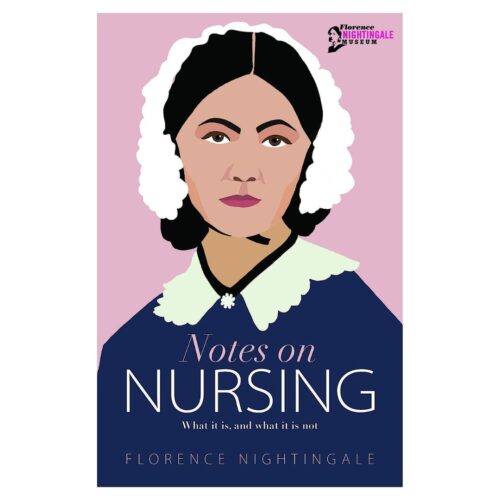 Florence Nightingale’s seminal work, the classical historical nursing text. Florence Nightingale wrote Notes on Nursing to help ordinary women care for their families. Translated into over ten languages, and never out of print since its first appearance, this really is the classic nursing text. Over 160 years later much of the advice given continues to be pertinent in the extreme, especially in the light of the recent global pandemic. Published in conjunction with - and including a foreword by - the Florence Nightingale Museum. The cover of this edition is exclusive to the museum.
Florence Nightingale’s seminal work, the classical historical nursing text. Florence Nightingale wrote Notes on Nursing to help ordinary women care for their families. Translated into over ten languages, and never out of print since its first appearance, this really is the classic nursing text. Over 160 years later much of the advice given continues to be pertinent in the extreme, especially in the light of the recent global pandemic. Published in conjunction with - and including a foreword by - the Florence Nightingale Museum. The cover of this edition is exclusive to the museum. -
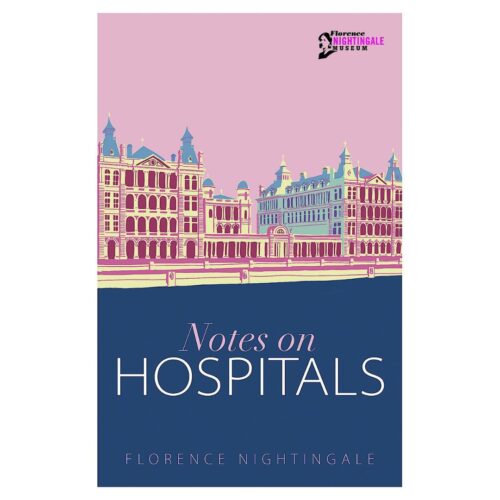 In this classic historical text on hospitals - featuring a foreword by the Florence Nightingale Museum - Nightingale reveals her passion for good hospital architecture and design. At Scutari she saw first-hand the harm which can be caused by inadequate and poorly designed hospital buildings. Nightingale openly criticised designs which she thought might lead to higher infection rates, and therefore patients' deaths. Published in conjunction with the Florence Nightingale Museum, the cover of this edition is exclusive to the museum.
In this classic historical text on hospitals - featuring a foreword by the Florence Nightingale Museum - Nightingale reveals her passion for good hospital architecture and design. At Scutari she saw first-hand the harm which can be caused by inadequate and poorly designed hospital buildings. Nightingale openly criticised designs which she thought might lead to higher infection rates, and therefore patients' deaths. Published in conjunction with the Florence Nightingale Museum, the cover of this edition is exclusive to the museum. -
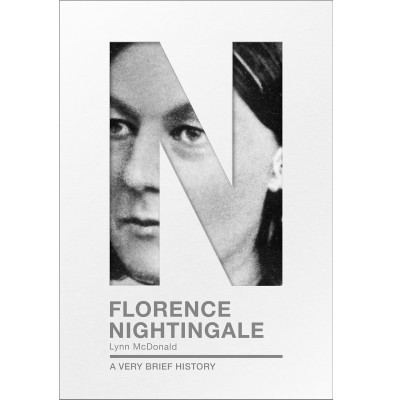 Concise historical introduction to Florence Nightingale and her continuing influence on the world. Florence Nightingale is widely known as the founder of modern nursing. She is also a brilliant and highly influential social reformer. Written by a world authority, this brief history explores Nightingale’s background and motivations. It also offers an informed assessment of the scale and significance of her legacy. It has been called timely and important by Alasdair Redfern, Bishop of Derby 2005-2018.
Concise historical introduction to Florence Nightingale and her continuing influence on the world. Florence Nightingale is widely known as the founder of modern nursing. She is also a brilliant and highly influential social reformer. Written by a world authority, this brief history explores Nightingale’s background and motivations. It also offers an informed assessment of the scale and significance of her legacy. It has been called timely and important by Alasdair Redfern, Bishop of Derby 2005-2018. -
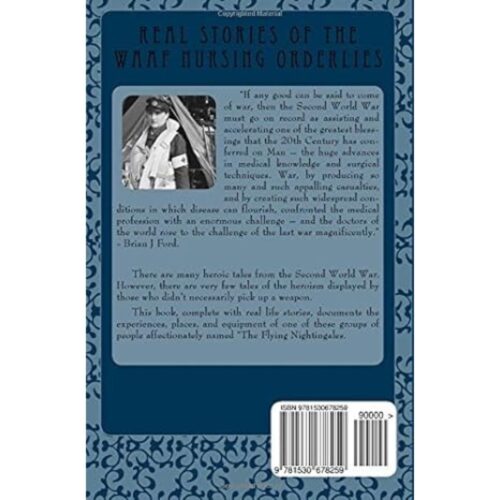
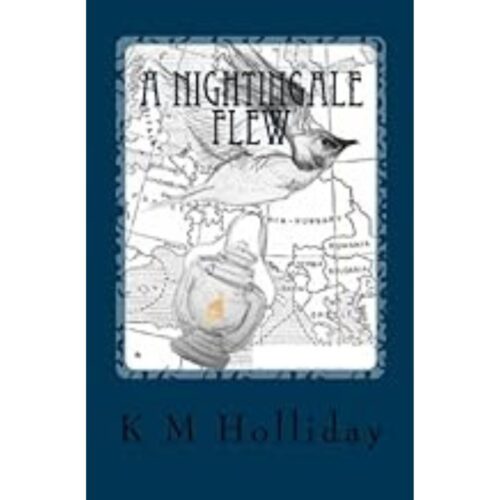 There are many heroic tales from the Second World War. However, there are very few tales of the heroism displayed by those who didn’t necessarily pick up a weapon. These women offered lifesaving treatment, keeping men alive so they could undergo the operations and procedures they needed to keep them that way. This book, complete with real life stories, documents the experiences, places, and equipment of one of these groups of people affectionately named “The Flying Nightingales.
There are many heroic tales from the Second World War. However, there are very few tales of the heroism displayed by those who didn’t necessarily pick up a weapon. These women offered lifesaving treatment, keeping men alive so they could undergo the operations and procedures they needed to keep them that way. This book, complete with real life stories, documents the experiences, places, and equipment of one of these groups of people affectionately named “The Flying Nightingales. -
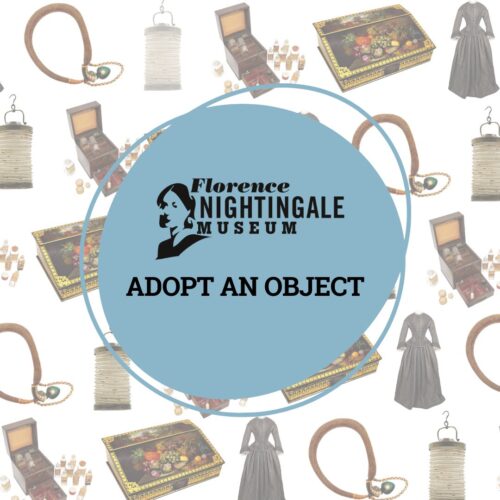 The Florence Nightingale Museum is pleased to announce our Adopt an Object scheme. We have chosen some of our key objects for you to adopt either for yourself, as a gift for someone or on a corporate basis. Your donation will go directly towards looking after our fantastic collection. Your adoption will last for 12 months.
The Florence Nightingale Museum is pleased to announce our Adopt an Object scheme. We have chosen some of our key objects for you to adopt either for yourself, as a gift for someone or on a corporate basis. Your donation will go directly towards looking after our fantastic collection. Your adoption will last for 12 months. -
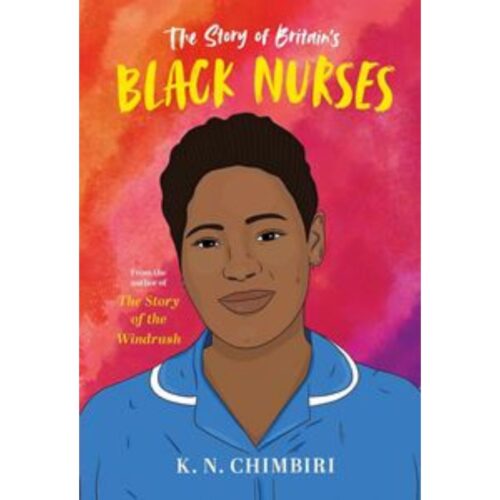 A wonderful celebration of the fascinating and seldom heard stories of Britain’s Black nurses. From ancient and medieval Africa, through colonisation and enslavement, through wars, times of great change and onwards … to the creation of the NHS and beyond, the story of nursing has always also been the story of Britain’s Black nurses. This story includes many incredible nurses from around the world: talented, skilful, innovative, hardworking and resilient
A wonderful celebration of the fascinating and seldom heard stories of Britain’s Black nurses. From ancient and medieval Africa, through colonisation and enslavement, through wars, times of great change and onwards … to the creation of the NHS and beyond, the story of nursing has always also been the story of Britain’s Black nurses. This story includes many incredible nurses from around the world: talented, skilful, innovative, hardworking and resilient
